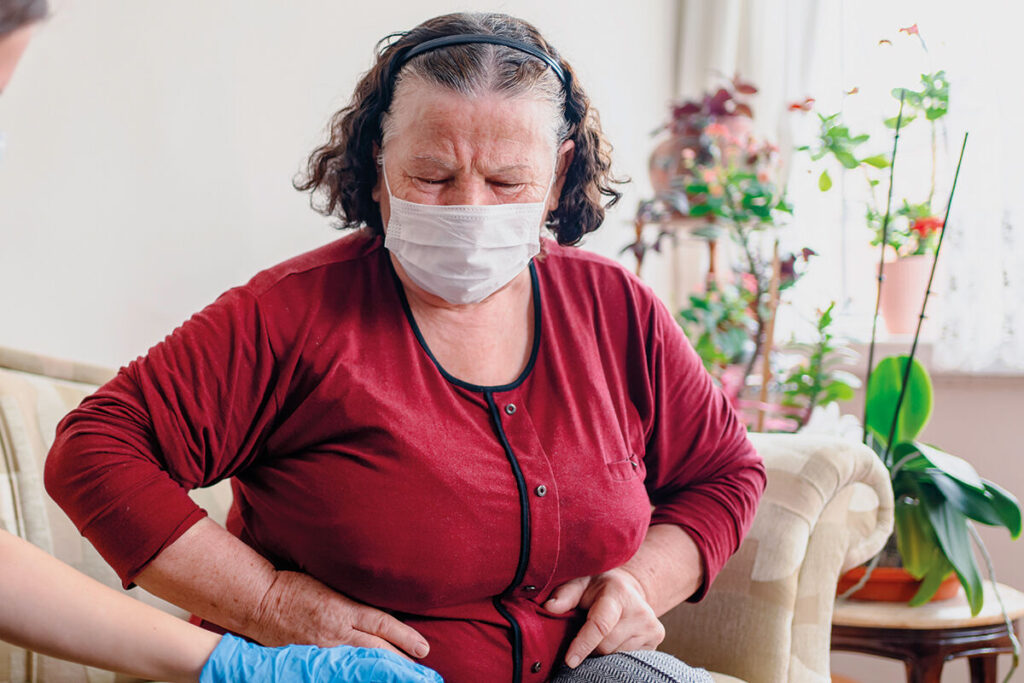
Continuing our series of clinical scenarios that can commonly be mishandled in primary care, Dr Keith Hopcroft describes the potential for misdiagnosing diarrhoea in the elderly
You receive a message from the local residential home about an 89-year-old lady with dementia. It states: ‘Still has diarrhoea. Leaking at times. Medication not working.’
You scan the notes. This seems to have been going on for six weeks, and a number of doctors and nurse practitioners have already offered telephone advice. Before this episode, the patient had a tendency to constipation, with her bowels only opening every few days. Now she is passing liquid-type stool frequently and having numerous episodes of faecal incontinence. The patient does not have capacity and a colleague has discussed the situation with her family, with a consensus that it would be inappropriate to investigate this apparent change in bowel habit. As a result, she has been treated symptomatically with loperamide. The home manager asks for stronger antidiarrhoeals and incontinence team input.
The reality
Diarrhoea may paradoxically be caused by severe constipation.
The issue
The reflex tendency is to assume that recent-onset diarrhoea in adults will have an acute cause – typically gastroenteritis or a medication side-effect – and that ongoing or recurrent diarrhoea will need investigation to rule out pathologies such as colitis or malignancy. For this reason, it is easy to overlook the fact that the symptom can actually be caused by the ‘opposite’ problem – constipation.
Severe constipation, especially in the elderly, can lead to impaction, with the rectum effectively being blocked by large, firm faecal masses. Only the more proximal, liquefied stool can escape, either as ‘spurious diarrhoea’ or as loose faecal incontinence.
If this is not recognised, treatment with antidiarrhoeals will only aggravate the problem.
The evidence
Constipation is common in the elderly – severe constipation affects nearly 70% of people in residential homes.1 There are many well-recognised factors, including diet, immobility and medication side-effects. A proportion of these patients will develop faecal impaction, leading to spurious diarrhoea and overflow diarrhoea, both of which may result in faecal incontinence. This symptom is a surprisingly common issue, affecting up to 20% of adults in the community and more than half of nursing home residents.2 There are many causes of faecal incontinence, and poor mobility is often a factor. In a significant number, the underlying cause will prove to be faecal impaction.
This scenario is also seen in children, though the diagnosis is less likely to be overlooked as the history is clearer and there are fewer differentials.
Avoiding a clanger
A careful history may give a significant clue by revealing a tendency to constipation, possibly with a deterioration just before the onset of diarrhoea. In addition, patients may volunteer that they feel as though there is a hard mass to pass – and this can be confirmed via a rectal examination.
Simply being aware of this as a diagnostic possibility, especially in the elderly and care home residents, will reduce delayed or missed diagnosis.
Caveats
The finding of a faecally full rectum isn’t unusual in the elderly. Impaction with overflow can only be assumed to be the cause if appropriate treatment – which might need enemas and nursing input – resolves the problem. If not, reassessment is required.
Key points
- Constipation is very common in the elderly, especially in residential homes
- Diarrhoea can be the paradoxical result of severe constipation causing faecal impaction
- Faecal impaction as a cause of diarrhoea or faecal incontinence is easily overlooked
- Incorrect treatment may aggravate the underlying problem
- The diagnosis will be revealed by a careful history and a confirmatory rectal examination
Dr Keith Hopcroft is a GP in Basildon, Essex
References
- Setya A, Mathew G, Cagir B. Fecal impaction. StatPearls Publishing. 2021. Link
- Leung F, Rao S. Fecal incontinence in the elderly. Gastroenterol Clin North Am 2009;38:503-11. Link
















